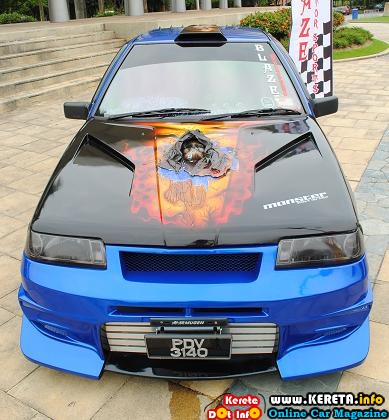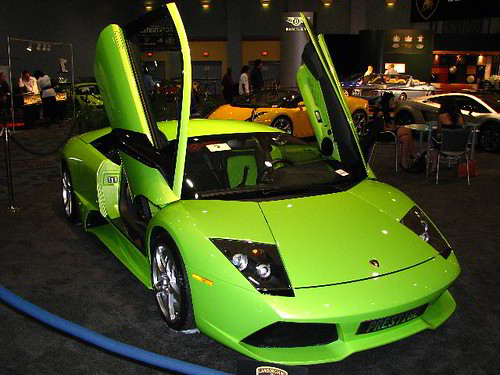|
|
|---|
Thursday, December 3, 2009
Lithium and REE: Peugeot and Mitsubishi head for £2bn electric car alliance TNR.v, CZX.v, WLC.v, LI.v, RM.v, SQM, ROC, FMC, AVL.to, RES.v, QUC.v, F
Posted by andre at 5:01 PM
Consolidation has started in a Big Game:
"Rare earth: The New Great Game - Now we have BBC with Jack Lifton on its education course for Rare Earth Elements, as we have mentioned before: a lot of analysts find this sector very demanding in technical knowledge and general investment public follows guys like James Dines and Jay Taylor without deep understanding of the subject. Now Warren Buffett and BBC is taking its to the mainstream of investment world with a Bullish Case for Strategic Commodities for 21st century."

Who will start to consolidate Lithium and REE supply chain to match the ambitions of auto makers in Electric Space?
"From The Times
Leo Lewis
Peugeot Citroën is poised to plunge 300 billion yen (£2 billion) into Mitsubishi Motors to forge an alliance designed to rescue the Japanese company from financial calamity and create a European powerhouse for electric vehicles.
Negotiations have begun amid rising concern over Japan’s motor sector and its ability to compete in the emerging market for electric cars. Some industry analysts believe that Japanese companies may not be able to retain their technical superiority as demand for the combustion engine fades, leaving the new field of electric vehicles open to newer and nimbler players.
The Peugeot-Mitsubishi alliance would effectively make it the world’s sixth-biggest carmaker. The deal could allow Peugeot access to the state-of-the-art plant of GS Yuasa, the Japanese company that leads the fledgeling lithium car battery industry. GS Yuasa has been producing batteries as part of a joint venture with Mitsubishi Motors and Mitsubishi Corporation, the trading company. It was unclear how much of the factory’s output would be sold to companies other than Mitsubishi.
If the deal proceeds, the alliance is expected to focus on designing cars to suit first-time buyers in emerging Asian economies. It would also deepen its partnership on a joint production facility in Russia.
The French group’s investment would also allow Mitsubishi to continue developing its i-MiEV electric vehicle — the first in its class to be mass produced but still too expensive to appeal to consumers and in need of further development. The i-MiEV went on sale in July, but, at 3.2 million yen, is more than twice as expensive as the petrol-driven minicar on which it is based. Sales, so far, have been disappointing.
The deal would make the French carmaker the largest single shareholder in Mitsubishi Motors and would allow other companies in the Mitsubishi group to effect longdesired exits from the troubled carmaker that bears their brand. Shares in other Mitsubishi companies, including Mitsubishi Heavy Industries and Bank of Tokyo Mitsubishi UFJ, soared yesterday on the news.
Peugeot’s stake is likely to be bought in a single chunk as a block of privately issued shares, possibly representing as much as 50 per cent of Mitsubishi. Officials of the Japanese company said that such a percentage “would make sense”.
• Word of the talks emerged on a spectacularly good day for Japanese stocks. A fall in the yen and the possibility that the Government might be serious about tackling deflation propelled Tokyo’s shares to a five-week high. The Nikkei 225 closed 368.73 points up at 9,977.67."
Negotiations have begun amid rising concern over Japan’s motor sector and its ability to compete in the emerging market for electric cars. Some industry analysts believe that Japanese companies may not be able to retain their technical superiority as demand for the combustion engine fades, leaving the new field of electric vehicles open to newer and nimbler players.
The Peugeot-Mitsubishi alliance would effectively make it the world’s sixth-biggest carmaker. The deal could allow Peugeot access to the state-of-the-art plant of GS Yuasa, the Japanese company that leads the fledgeling lithium car battery industry. GS Yuasa has been producing batteries as part of a joint venture with Mitsubishi Motors and Mitsubishi Corporation, the trading company. It was unclear how much of the factory’s output would be sold to companies other than Mitsubishi.
If the deal proceeds, the alliance is expected to focus on designing cars to suit first-time buyers in emerging Asian economies. It would also deepen its partnership on a joint production facility in Russia.
The French group’s investment would also allow Mitsubishi to continue developing its i-MiEV electric vehicle — the first in its class to be mass produced but still too expensive to appeal to consumers and in need of further development. The i-MiEV went on sale in July, but, at 3.2 million yen, is more than twice as expensive as the petrol-driven minicar on which it is based. Sales, so far, have been disappointing.
The deal would make the French carmaker the largest single shareholder in Mitsubishi Motors and would allow other companies in the Mitsubishi group to effect longdesired exits from the troubled carmaker that bears their brand. Shares in other Mitsubishi companies, including Mitsubishi Heavy Industries and Bank of Tokyo Mitsubishi UFJ, soared yesterday on the news.
Peugeot’s stake is likely to be bought in a single chunk as a block of privately issued shares, possibly representing as much as 50 per cent of Mitsubishi. Officials of the Japanese company said that such a percentage “would make sense”.
• Word of the talks emerged on a spectacularly good day for Japanese stocks. A fall in the yen and the possibility that the Government might be serious about tackling deflation propelled Tokyo’s shares to a five-week high. The Nikkei 225 closed 368.73 points up at 9,977.67."
Subscribe to:
Post Comments (Atom)















0 comments:
Post a Comment